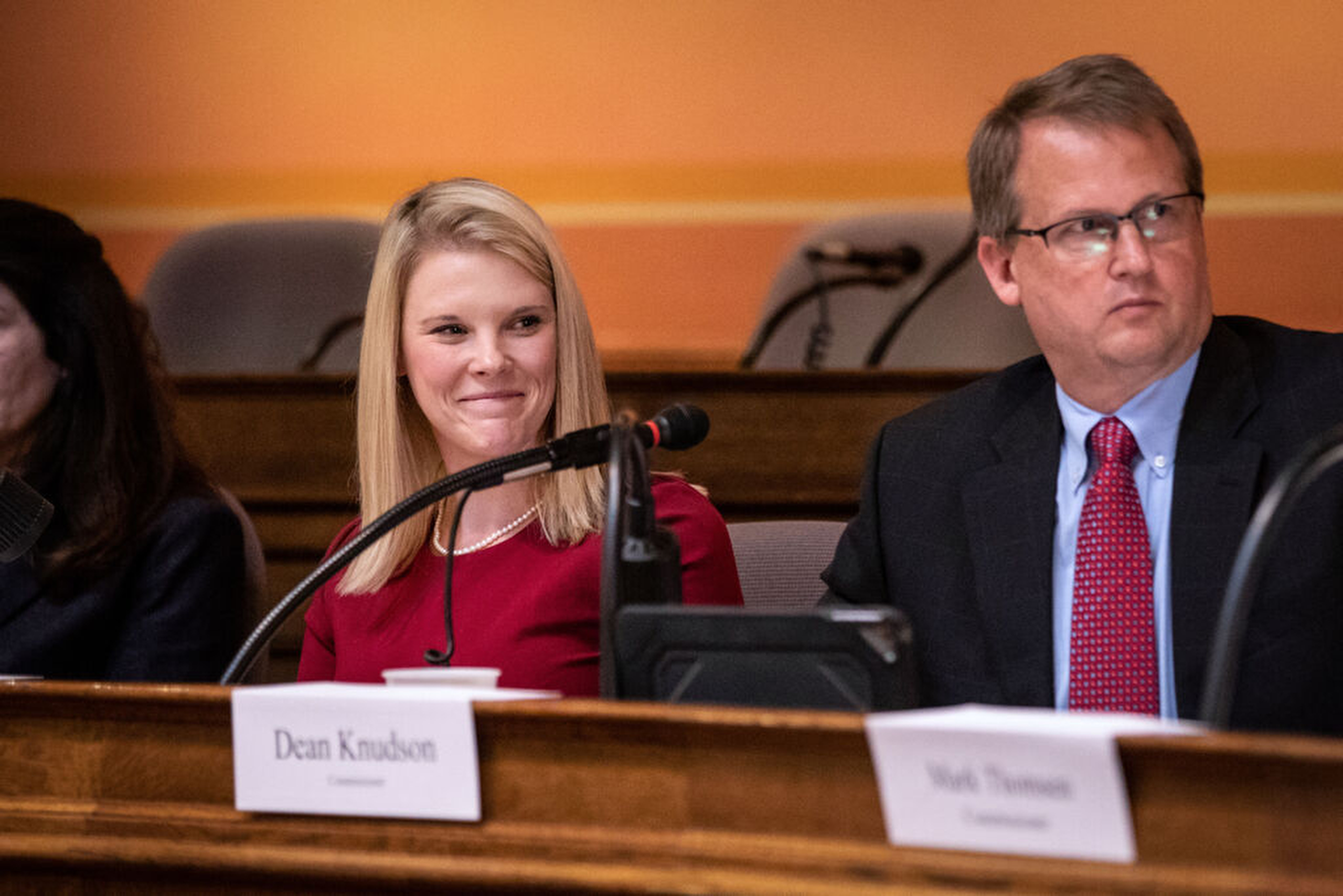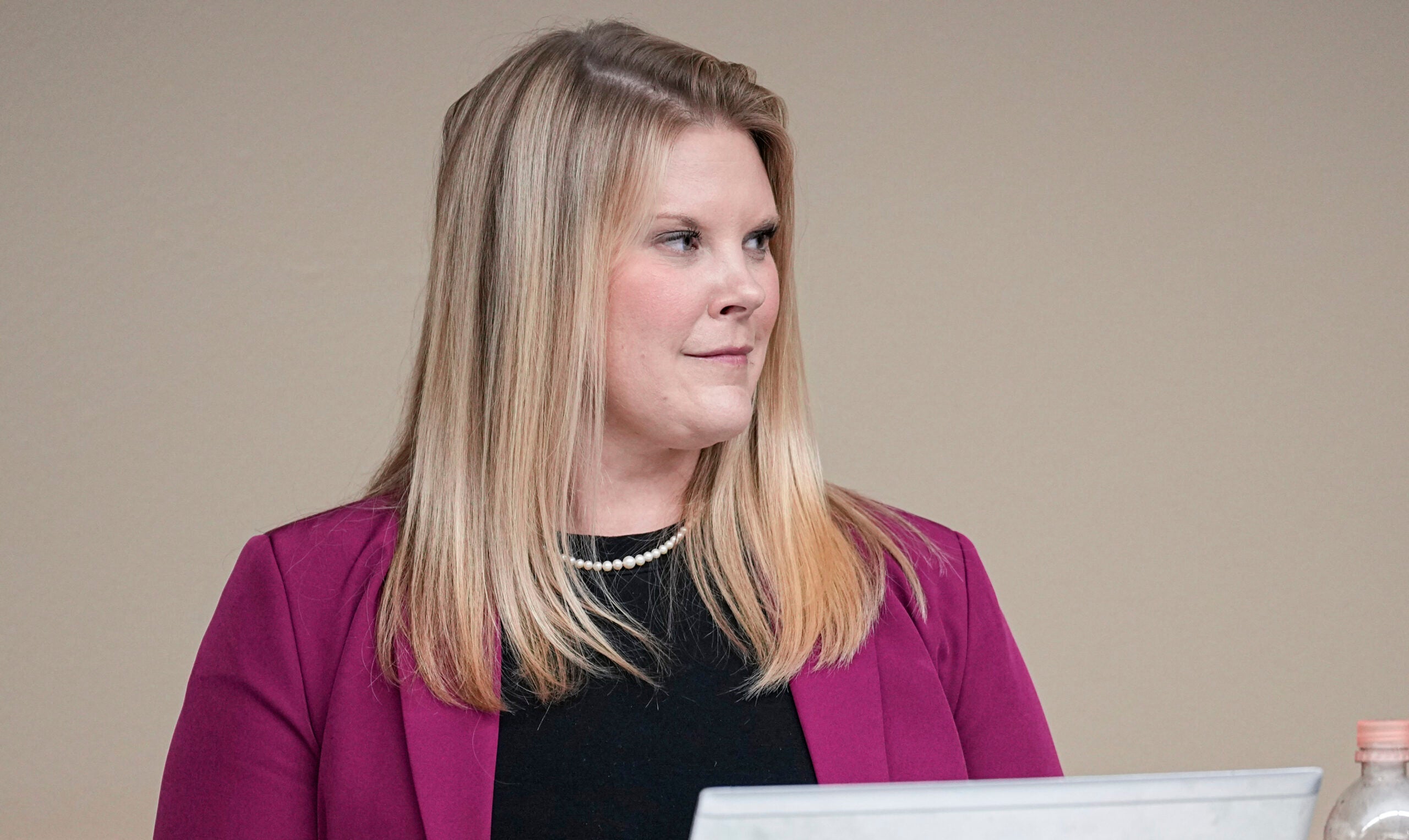The future of Wisconsin’s elections administrator remains in procedural limbo after the Wisconsin Elections Commission declined to vote Wednesday evening about a prospective Senate hearing on the office.
The commission met to determine whether Administrator Meagan Wolfe can testify before a committee of the GOP-led state Senate, which would be a step towards a confirmation hearing at which she could be fired.
It was the latest twist in a labyrinthine – and unprecedented – process that has cast questions about who will hold the top elections role going into the 2024 presidential election.
News with a little more humanity
WPR’s “Wisconsin Today” newsletter keeps you connected to the state you love without feeling overwhelmed. No paywall. No agenda. No corporate filter.
At the heart of Wednesday’s dispute was a question over whether Wolfe must face a Senate confirmation hearing. She has not been formally nominated to a second term – a procedural move that Democrats hoped would keep her away from a Senate confirmation hearing, and in her role indefinitely.
The commission on Wednesday did not take any vote about authorizing Wolfe to testify before a Senate committee that could open the door to such a hearing.
Elections Commission chair Don Millis, a Republican, said Wednesday that Wolfe had the commission’s backing to decide what to do next.
“It’s pretty much unanimous that we believe that you have the authority to do whatever you think is best, and we trust your ability to do that,” he said.
At the meeting, only Republican Commissioner Robert Spindell Jr. moved to authorize Wolfe to attend the hearing. He did not receive support from the other commissioners.
Ann Jacobs, a Democratic appointee, said that forcing Wolfe to testify before a senate committee would open the door to “crazy people” sharing debunked conspiracy theories about the 2020 election.
“I don’t have any intention in indulging the Legislature’s circus, which is based on a false reading of the law,” said Jacobs.
Wolfe’s term as administrator officially expired after June 30. But after some Republican lawmakers made clear they would not support her reappointment, the bipartisan Elections Commission – which has three Republican and three Democratic members – deadlocked over officially renominating Wolfe for a second term.
Democrats on the commission abstained from that vote, hoping to leverage a state Supreme Court decision from last summer that found that agency appointees can stay in their positions indefinitely if they decline to step down.
Wolfe, who was unanimously confirmed to her position in 2019, has received accolades for her nonpartisan administering of Wisconsin elections. But she has also been subject to attacks after former President Donald Trump’s false claims that he won the 2020 election in Wisconsin.
After the commission declined to move Wolfe’s renomination forward, in late June, the GOP-led state Senate surprised observers by voting to hold a hearing over her confirmation anyways.
Democrats have argued that the vote is illegitimate and that Wolfe does not need to go before the Senate.
If such a hearing is held, and Wolfe does not get the needed votes – as Sen. Majority Leader Devin LeMahieu, R-Oostburg, has said she will not – she will functionally be fired, leaving the agency role open just six months out from Wisconsin’s presidential primaries.
Democrats have argued that such a hearing cannot be held without a Commission nomination, and that there is precedent for Wolfe to stay in her position without being renominated and reconfirmed.
They cite a ruling by the former conservative majority on the Wisconsin Supreme Court that an appointee of former Republican Gov. Scott Walker could remain in his job indefinitely because he did not step down when his term expired. The court case suggests that, if an appointee does not step down, there is no vacancy to be filled.
The same logic, Democrats argue, can be applied to Wolfe’s limbo in office.
If Senate Republicans move to force a hearing, they’re likely to face court challenges.
“Some judge or some court is going to decide this,” Millis, the chair, said Wednesday.
The Supreme Court ruling has never been applied to the elections administrator role.
And the state Senate is not scheduled to return to session until September. Meanwhile, GOP presidential candidates are already on the campaign trail, and have their first debate scheduled – in Milwaukee – next week.
For her part, Wolfe said Wednesday she has been put in a challenging position.
“If I’m being very frank with you all, I think I’m being put in an absolutely impossible, untenable spot either way,” Wolfe said.
Wisconsin Public Radio, © Copyright 2025, Board of Regents of the University of Wisconsin System and Wisconsin Educational Communications Board.







